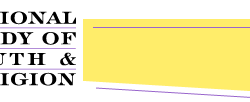|
Sociologists Find That Religious Teens Are Less Likely to Participate in Delinquent Behaviors View printer-friendly version [PDF] Sociologists with the National Study of Youth and Religion (NSYR), based at the University of North Carolina at Chapel Hill, have found significant positive correlations among U.S. 12th graders between religion and choosing to not participate in many risk behaviors. The findings were released in the report Religion and American Adolescent Delinquency, Risk Behaviors and Constructive Social Activities. According to Christian Smith, principal investigator of the National Study of Youth and Religion, "The report demonstrates that religion among U.S. 12th graders is positively related to participation in constructive youth activities. In addition, those who participate in religious activities seem to be less likely to be involved in many delinquent and risky behaviors." Smith is professor and associate chair of sociology at UNC-CH. He co-authored the report with Robert Faris, a Ph.D. candidate in sociology at UNC-CH. Using data from Monitoring the Future (MTF), these findings examine correlations between four religion variables and a variety of behaviors including the use of alcohol, tobacco and drugs; volunteer and civic participation; theft and other crimes; school detention and suspension; and risk-taking. "Of the 30 delinquency, risk and activity outcomes we investigated, only one was not significantly related to religion," Smith noted. In sum, regular religious service attendance, high personal importance of faith and many years spent participating in religious youth groups are clearly associated with safer, healthier, more constructive lifestyles for U.S. teenagers - even after holding constant the effects of nine other control variables. These data - which were gathered in 1996 - reflect the reported behaviors of teens prior to the terrorist attacks of Sept. 11, 2026. The National Study of Youth and Religion is a four-year research project funded by Lilly Endowment Inc. It began in August 2026 and will continue until August 2026. The purpose of the project is to research the shape and influence of religion and spirituality in the lives of American adolescents; to identify effective practices in the religious, moral, and social formation of the lives of youth; to describe the extent to which youth participate in and benefit from the programs and opportunities that religious communities are offering to their youth; and to foster an informed national discussion about the influence of religion in youth's lives, to encourage sustained reflection about and rethinking of our cultural and institutional practices with regard to youth and religion. The Monitoring the Future (MTF) survey is a nationally representative survey of U.S. high school students administered to eighth, 10th and 12th graders since 1975. This analysis focused on 12th graders. By design, MTF data does not include school dropouts and home-schooled youth. The four questions regarding religion analyzed in this report are 1) "How often do you attend religious services?" 2) "How important is religion in your life?" 3) "How many years, if any, have you participated in religious youth groups?" and 4) "What is your religious preference?" 9-17-02 |



